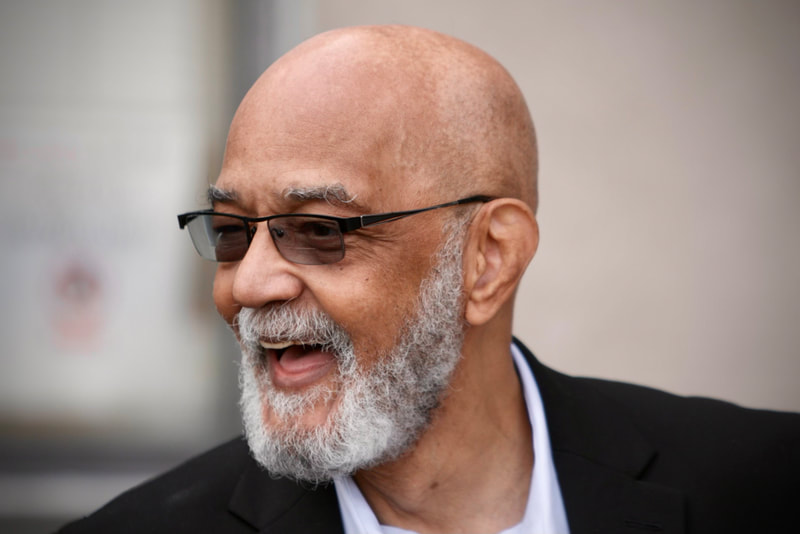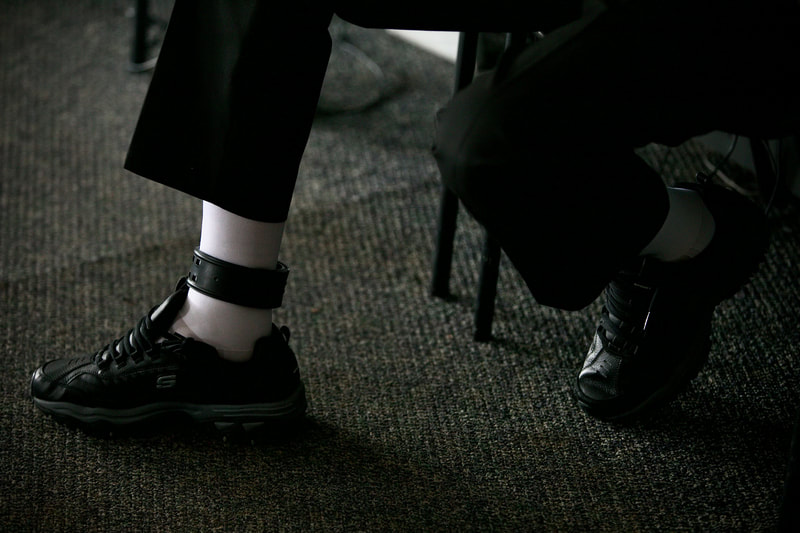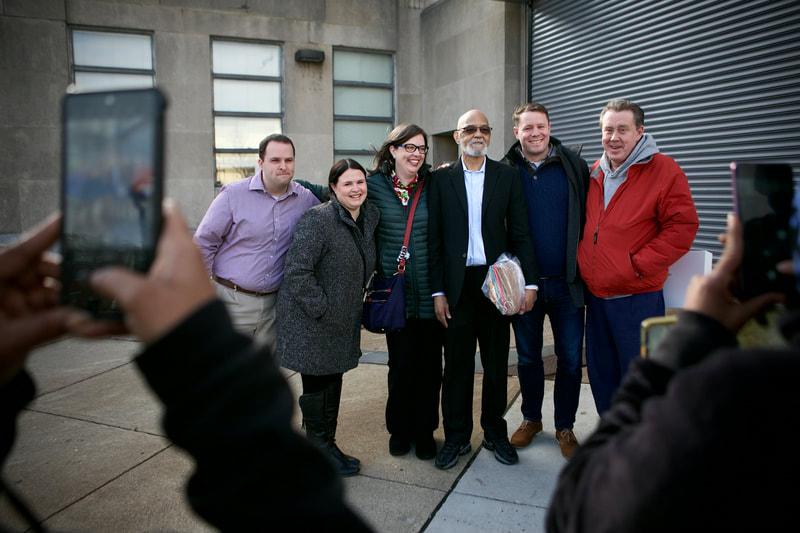|
Note: This Enquirer story was written by Dan Horn with reporting help from Amber Hunt, who was in surgery during the ruling and texting like a mad woman to find out what was happening. Photos are by Amanda Rossmann.
A man who sat on Ohio’s death row for almost three decades will be released Saturday after a judge ruled he didn't get a fair trial and is eligible for bond. Elwood Jones, convicted of a murder he says he didn’t commit, turned to his attorneys after the judge's ruling and said, "Thank you." Jones has insisted since his arrest that he did not kill Rhoda Nathan in her Blue Ash hotel room in 1994. Judge Wende Cross, who set his bond Friday, ordered a new trial for Jones last month after concluding prosecutors withheld crucial evidence in his original trial. Cross cleared the way for Jones’ release after a hearing Friday morning in Hamilton County Common Pleas Court, when she set an unsecured $50,000 bond for Jones, which means he's not required to post any money and only pays if he fails to show up for future court appearances. After he is processed through the probation department Saturday, he will have served 9,971 days behind bars for Nathan's murder. The ruling came after an extraordinary and emotional hearing that included testimony from Nathan's children, who begged the judge not to release Jones, and arguments from defense attorneys, who said he is an innocent man who's been punished enough. "The right person has never been charged. The right person has never been convicted," said Jay Clark, who along with attorney David Hine represented Jones pro bono. "For 27 years, he has maintained his innocence and fought for a new trial." Prosecutors, Rhoda Nathan's family asked judge not to release Jones Prosecutors said Jones doesn't deserve a new trial and vowed to appeal the judge's ruling. They asked Cross on Friday to keep Jones locked up on a $10 million bond until they get the chance to argue before an appeals court that Cross erred in granting a new trial. Assistant Prosecutor Seth Tieger said Jones had a long criminal history before he was arrested for Nathan's murder, including burglary and assault charges, and warned that he was a risk to harm others or to flee if the judge released him on bond. "The only thing that can stop him is prison," Tieger said. "He's 70 years old. He's got a lot of crime left in him." Nathan's sons said granting Jones a new trial has reopened old wounds for their family. They said freeing him would inflict even more harm. "The state has proven its case in appeal after appeal," Peter Nathan told the judge. "Please do not release him on bail." Cross, however, said the standard for setting bail in a capital murder case in Ohio depends on whether the "proof is evident and the presumption of guilt is great." In this case, the judge said, prosecutors had failed to meet that standard. In addition to his bond, Jones must wear an electronic monitoring device with GPS tracking, is not permitted to leave the county and is subject to unannounced searches by the probation department. After the hearing, a spokeswoman for the prosecutor's office said the judge made a big mistake, citing years of appellate court review upholding Jones' conviction. "It is shocking that a trial court believes they have the authority to ignore direct orders of a superior court," said the spokeswoman, Amy Clausing. "The family of Rhoda Nathan and the people of Hamilton County deserve better than this. Why was Elwood Jones granted a new trial? The complexity of Jones’ case and the evidence against him has drawn national and local media attention for decades, including from Enquirer journalists who reinvestigated his case last year for the newspaper’s true-crime podcast, “Accused.” Cross, who criticized the prosecution’s “win-at-all-cost mentality,” said the undisclosed evidence called into question the jury’s guilty verdict in 1996. “It is clear the failure to disclose the existence of relevant exculpatory and impeaching evidence prior to trial deprived Elwood Jones of a fair trial,” Cross said after granting him a new trial in December. The case against Jones began with the discovery of Nathan’s body in her Embassy Suites hotel room on Sept. 3, 1994. The New Jersey grandmother, who was in town for the bar mitzvah of her best friend’s grandson, was found bloodied and beaten on the floor. Jones worked at the hotel and was on the job the day she died. The evidence against Jones included an infected cut on his hand that a doctor testified he likely got from striking someone in the mouth, bruising on Nathan’s body that prosecutors said matched Jones’ work radio, and a pendant discovered in Jones’ toolbox that Nathan’s family said belonged to her. Since the original trial, Jones, his lawyers and others have challenged that evidence and have alleged police and prosecutors failed to pursue other leads and possible suspects. Defense attorneys, in some cases backed by forensic and medical experts, say the evidence was not as conclusive as prosecutors made it out to be. They say the hand infection could have come from other sources, including Jones’ own mouth, and the pendant could have been put in the toolbox by someone other than Jones, who claims he’d never seen it before. Prosecutors also did not share all the evidence they’d gathered during the investigation, which is a problem only if that evidence is relevant to the case. The undisclosed evidence included Nathan’s active Hepatitis B infection, which defense attorneys say was crucial information because the highly infectious virus might have been passed on to someone who cut his hand while striking Nathan. Jones has tested negative for the virus. Prosecutors also did not tell defense lawyers about another man’s supposed confession to the crime. Delores Suggs testified in December that before Jones’ trial in 1996 she called Blue Ash police to tell them she’d met a woman in the county jail with information about the case. That woman, Suggs said, told her that her husband had killed a woman at the Embassy Suites in Blue Ash and framed a Black man for the crime. Cross said those and other pieces of undisclosed evidence were relevant to the case and should have been shared with defense lawyers. Former Prosecutor Joe Deters has said some mistakes were made during the trial, as they are in any trial, but that those errors didn’t undermine the jury’s guilty verdict. After Cross’ ruling in December, Deters said that the decision to order a new trial was “offensive” and “ridiculous.”
0 Comments
|
Hi.I'm an author, journalist, photographer and college instructor. Archives
March 2023
Categories |
| Amber Hunt | Musings |




 RSS Feed
RSS Feed